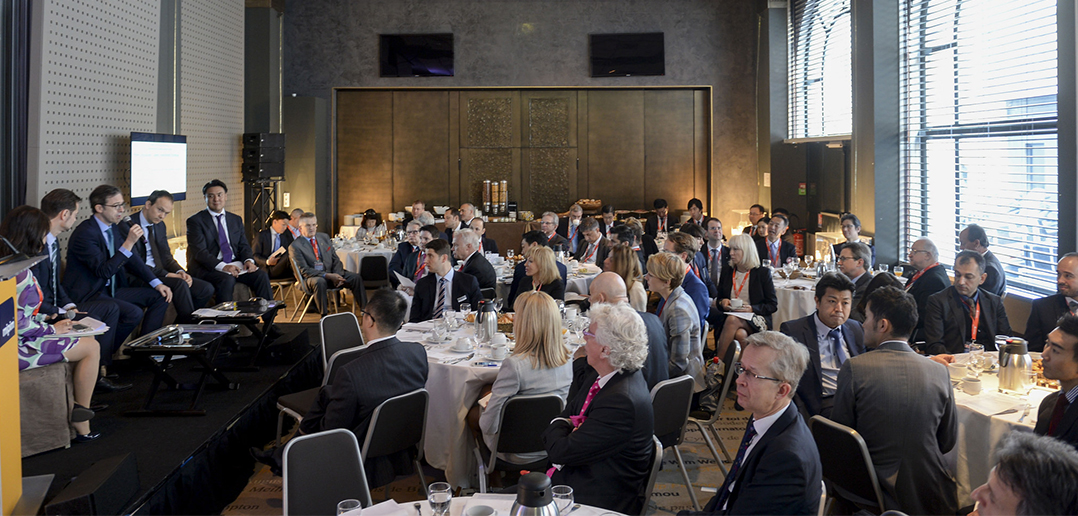Takashi Ishizuka, Deputy Director General City Bureau – Ministry of Land, Infrastructure Transport and Tourism, spoke on the Japanese property market, amid concerns of a slowing economy.
Ishizuka is optimistic about the market in Japan. Abenomics, referring to economic policies employed by Shinzo Abe, has been impactful in Japan’s recovery. Under Abe’s cabinet, foreign arrivals have grown. Reforms targeting fiscal policy and monetary easing have been effective in attracting foreign capital. Last year, the asset market reached 14 trillion yen and had $40 million in sales transactions, surpassing all other Asia Pacific countries for direct commercial real estate investments, even China.
The property market is hottest in Tokyo, still attracting capital from foreign and domestic investors because of its diversity and transport access. Despite a weak yen in 2015, Tokyo ranked 1st among Asia Pacific nations and ranked 5th in the world. Rents in this mega-city are cheaper than other major Asian cities according to Ishizuka. Corporate tax rates are still high but are expected to drop in the 20% range in the near future. Government policies to stimulate spending include incentives for sustainable urban development, tax relief and special zone incentives.
REITs are gaining market share, representing 6% of total investments. The first healthcare JREIT was formed last year, which will be interesting to watch as the elderly demographic, now at about 1/3 of the population, continues to grow.
More capital is coming into Japan rather than going out. “Foreign capital is not an enemy but a friend” says Hideko Yano, President of Sumisho Realty Management Co., Ltd. 15% of real estate sales are from cross border investors. This will change as Japan plans to invest more capital abroad, primarily in European markets.
Despite Japan’s flat economy, there is opportunity on the horizon. Foreign investors seem to be driving the market, seeking stability and transparency in Japanese real estate. There continues to be great demand for high-end luxury property, and with lending rates at an all time low, respectable yields between 200-500 basis points can be achieved depending on the asset class. Specialty property types such as student and senior housing are on the rise to mitigate some of the challenges facing the nation such as the growing elderly population and shrinking workforce. Investments in infrastructure and transit corridors will connect cities and therefore open up the property market to expand beyond Tokyo into cities such as Osaka, Sapporo, Nagoya, Fukuoka and Sendai.
Japan’s property market is a safe core investment for foreign and domestic capital due to its stability and transparency. Market appreciation, or lack thereof, is a potential risk, however, in adopting a negative interest rate, a 2% growth rate is expected.



